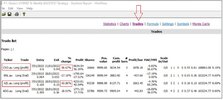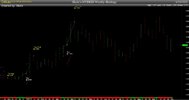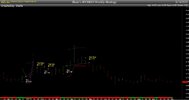- Joined
- 8 March 2007
- Posts
- 2,971
- Reactions
- 4,127
With great Respect?
Has anybody ever tested the reality of "Computer Fraud" in Back Testing
Please show me when you were GAPPED OUT in ANY of your data trades
How does the likes Nick Radge and others handle the GAPS in either direction and in their reporting system
Do they just ignore them as if they don't exist? ( GAPS)
It reminds me of a Wolf taking a Lamb for lunch and the Lamb asks the wolf "What's for Lunch"
Has anybody ever tested the reality of "Computer Fraud" in Back Testing
Please show me when you were GAPPED OUT in ANY of your data trades
How does the likes Nick Radge and others handle the GAPS in either direction and in their reporting system
Do they just ignore them as if they don't exist? ( GAPS)
It reminds me of a Wolf taking a Lamb for lunch and the Lamb asks the wolf "What's for Lunch"





